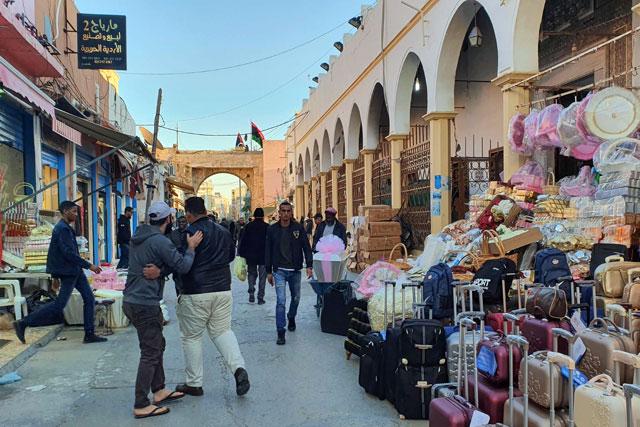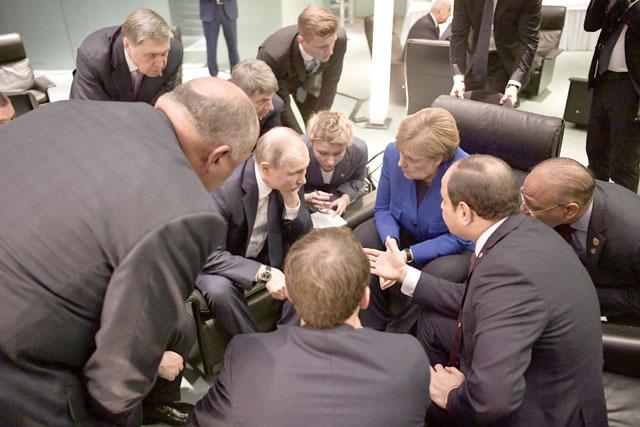You are here
Libya’s PM vows to help ease migrant suffering
By AFP - Dec 08,2017 - Last updated at Dec 08,2017
BERLIN — Libya’s prime minister vowed on Thursday to take action to ease the suffering of tens of thousands of migrants stranded in his north African country, even though it is still battling instability.
Thousands of migrants, many from Sub-Saharan Africa, had travelled to Libya in the hopes of making the sea crossing to reach Italy, before moving northwards to other parts of Europe.
But they found themselves stuck in holding centres, as Tripoli worked with the European Union to cut off the sea smuggling routes.
Speaking after talks with German Chancellor Angela Merkel in Berlin, Libya’s Prime Minister Fayez Al Sarraj said the numbers of migrants are “staggering — we are talking about 500,000 migrants outside holding centres and 20,000 in the 42 centres run by the interior ministry”.
But he said that last month’s two-day summit in Abidjan on the migration crisis has prompted some African countries to take action.
“Some African countries began to organise flights to repatriate their citizens and we are very open and cooperative with these countries,” Sarraj said, adding that Tripoli has also agreed with Rome to set up repatriation offices in migrant holding centres.
“And we are open to working with all regional and international organisations to end the suffering of the migrants and to help them return to their countries,” added the Libyan prime minister.
Merkel meanwhile pledged help from the EU, saying that “from Europe, we will provide support so that many can go home” to their countries of origin.
She also urged Sarraj to give “better access” to international organisations to the holding camps.
Addressing recent reports that some migrants had even been sold into slavery, Sarraj said a commission of inquiry will soon deliver findings on whether the claims are substantiated.
“We express our total condemnation of such practice if it really exists,” he said.
Human-trafficking networks have flourished in the chaos that followed a NATO-backed uprising which toppled long-time Libyan dictator Muammar Qadhafi in 2011.
Related Articles
MOSCOW — Diplomatic efforts to end the conflict in Libya ratcheted up on Tuesday as Russia said that the warring factions had agreed to main
BERLIN — A peaceful solution to Libya's protracted conflict remains uncertain despite an international agreement struck in Germany, analysts
BERLIN — World leaders committed on Sunday to ending all foreign meddling in Libya's war and to uphold a weapons embargo at a Berlin summit,














